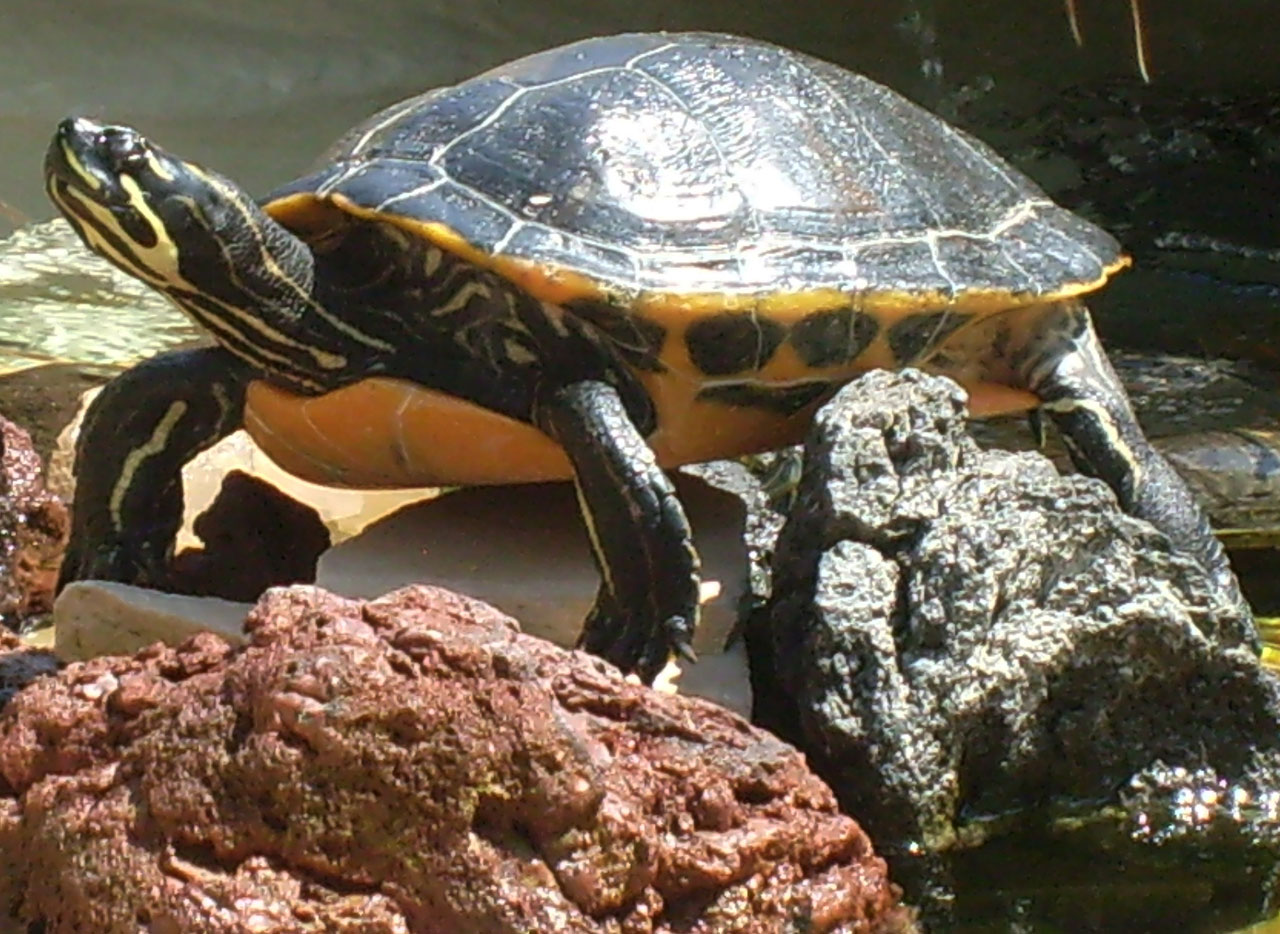Are Red-Bellied Turtles Dangerous?
Red-bellied turtles, also known as red-eared sliders, are a popular choice for pet owners and reptile enthusiasts. However, there is often confusion and concern about their potential danger, particularly when it comes to their interactions with humans and other animals. In this article, we will explore the nature of red-bellied turtles and address the question: Are red-bellied turtles dangerous?
The Nature of Red-Bellied Turtles
Red-bellied turtles are semi-aquatic turtles native to the southern United States. They are known for their distinctive red markings on their bellies and the ability to slide off rocks and logs into the water, hence the name “red-eared sliders.” These turtles are popular pets due to their small size, ease of care, and attractive appearance.
Red-bellied turtles are generally docile creatures and are not inherently dangerous. They do not pose a significant threat to humans or other animals. However, it is essential to understand their behavior and potential risks associated with their care and handling.
Potential Risks and Concerns
While red-bellied turtles are not dangerous by nature, there are a few potential risks and concerns that pet owners and individuals should be aware of:
- Bacterial Infections: Red-bellied turtles can carry salmonella bacteria, which can cause illness in humans. It is crucial to practice good hygiene, such as washing hands thoroughly after handling the turtle or cleaning its habitat.
- Bites: Although red-bellied turtles have a relatively small bite force, they can still bite if they feel threatened or mishandled. It is essential to handle them gently and avoid provoking them.
- Aggression towards Other Turtles: Red-bellied turtles can display territorial behavior and may become aggressive towards other turtles, especially during breeding season. It is important to provide adequate space and separate turtles if necessary.
- Environmental Impact: Red-bellied turtles are considered invasive species in some regions outside their natural habitat. Releasing them into the wild can disrupt local ecosystems and harm native wildlife.
Common Misconceptions
There are several misconceptions surrounding red-bellied turtles that contribute to the perception of them being dangerous. It is important to address these misconceptions to provide a more accurate understanding:
- Aggression towards Humans: While red-bellied turtles can bite if they feel threatened, they are not typically aggressive towards humans. They are more likely to retreat or slide into the water when approached.
- Carrying Diseases: While it is true that red-bellied turtles can carry salmonella bacteria, the risk of infection can be minimized by practicing good hygiene and proper care.
- Attacking Other Animals: Red-bellied turtles are not known for attacking other animals. However, they may display territorial behavior towards other turtles or small fish in their habitat.
Frequently Asked Questions (FAQ)
1. Can red-bellied turtles cause serious injuries?
No, red-bellied turtles do not have a strong bite force and are unlikely to cause serious injuries. However, it is still important to handle them gently and avoid provoking them.
2. Are red-bellied turtles venomous?
No, red-bellied turtles are not venomous. They do not possess any venomous glands or structures.
3. Can red-bellied turtles transmit diseases to humans?
Red-bellied turtles can carry salmonella bacteria, which can cause illness in humans. It is crucial to practice good hygiene, such as washing hands thoroughly after handling the turtle or cleaning its habitat, to minimize the risk of infection.
4. Do red-bellied turtles attack other pets?
Red-bellied turtles are not known for attacking other pets. However, it is important to supervise interactions between turtles and other animals to ensure the safety of all parties involved.
5. Are red-bellied turtles legal to own as pets?
Red-bellied turtles are legal to own as pets in many places. However, it is essential to check local regulations and ensure responsible ownership to prevent the release of these turtles into the wild.
6. How can I minimize the risks associated with red-bellied turtles?
To minimize the risks associated with red-bellied turtles, it is important to practice good hygiene, provide proper care and habitat, handle them gently, and avoid releasing them into the wild.
Summary
Red-bellied turtles, or red-eared sliders, are not inherently dangerous creatures. While they can carry salmonella bacteria and may bite if threatened, they are generally docile and pose little risk to humans or other animals. It is crucial to practice good hygiene, handle them gently, and provide proper care to minimize any potential risks. By understanding their behavior and addressing common misconceptions, we can appreciate these fascinating reptiles without undue concern.



